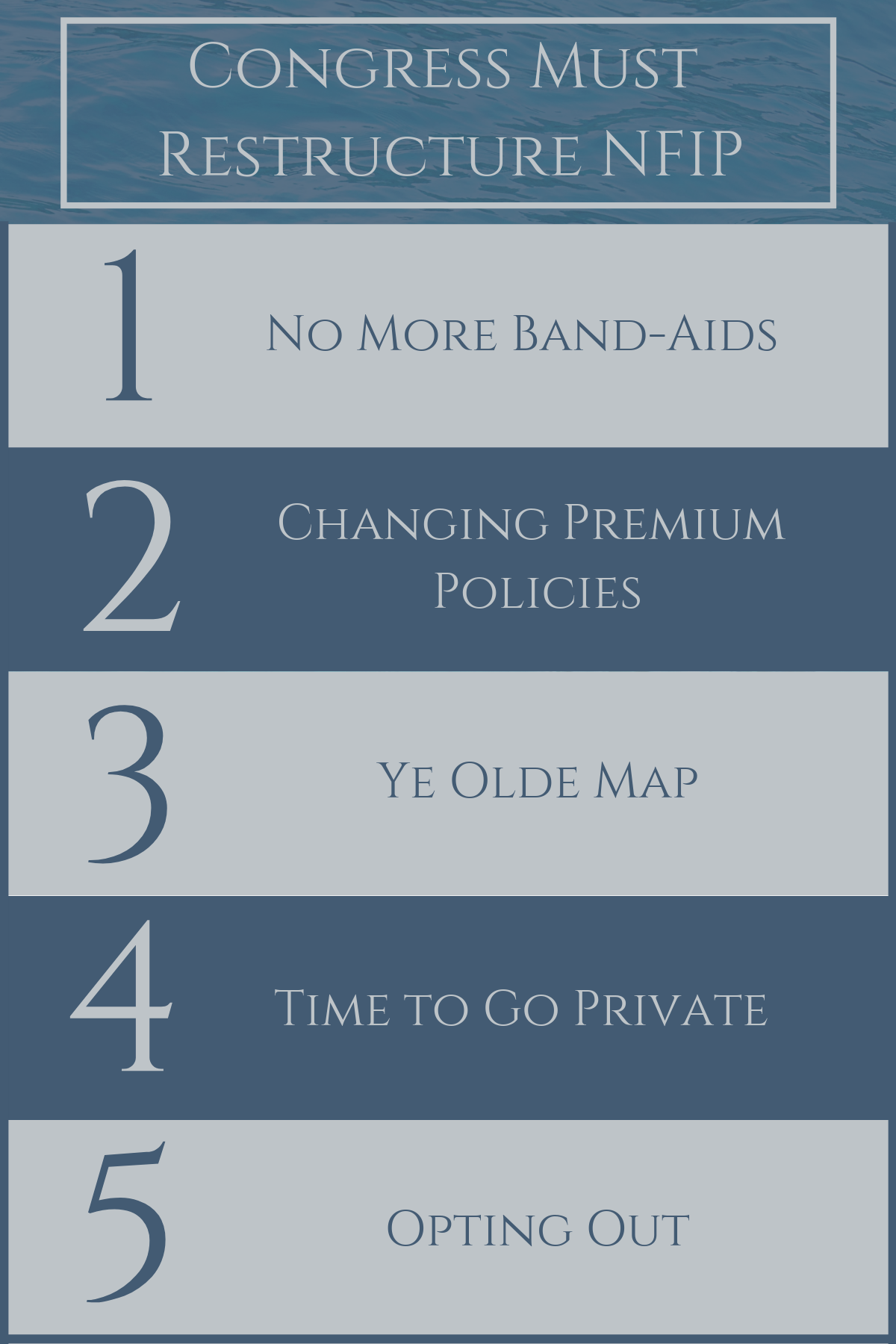05 Mar No More Extensions – Congress Must Restructure the National Flood Insurance Program

855-368-5502
No More Extensions - Congress Must Restructure the National Flood Insurance Program
By: Adam M. Matheny
In the past 15 months, Congress has managed to pass no less than nine extensions to the National Flood Insurance Program. Currently, the NFIP provides flood insurance coverage for approximately 5.1 million properties. The program also offers essential assistance during emergencies. The last of these extensions was passed on the 21st of December 2018 and is set to expire on the 31st May 2019.
No More Band-Aids
The simple fact is that you can only use so many band-aids no matter how “politically expedient” doing so may seem. The NFIP is currently bleeding money at an incredible rate at the rate of approximately $1.4 billion annually and is in debt to the US Treasury to the tune of $20.5 billion. The rate of $1.4 billion is the difference between what is paid in premiums in comparison to what it paid out in claims and is only valid during years without a significant flooding event.
Everyone knows the program is riddled with problems. Despite this knowledge, Congress refuses to address them, let alone do anything about them. Something as simple as teaching homeowners and communities the steps they can take to mitigate the losses due to flooding. Emergency management officials at the highest levels in both Democratic and Republican governments agree the NFIP is in dire need of significant changes.
These changes need to address the issue of funding the rebuilding following a significant flood event and paying to help neighborhoods rebuild their communities in such a way as to mitigate flood damage and reduce financial losses.
Missouri Congressman Blaine Luetkemeyer has in fact put forward numerous changes to the NFIP designed to help return the program to a sound financial footing, including:

Changing Premium Policies
Everyone knows that the current premiums are not balanced in the right direction with the poor subsidizing the rich. The changes recommended include:
- Basing the policy’s premium on the replacement value of the property (private insurers do this).
- Eliminating the current policy of using the national average that does take into account the properties actual value and the actual risk of flooding.
Just these steps alone would go from a system that undercharges wealthy and overcharges low-income homeowners. In essence, this means that low-income homeowners are helping to subsidize those who can afford to pay the most.
Ye Olde Map
One of the more significant issues at the heart of the problem is that most of the flood risk maps currently being used were drawn up decades ago. A recent Inspector General report found that 58% of the maps were out of date and provided inadequate or inaccurate information. Under the Community Mapping Act introduced by Rep. Luetkemeyer, states and communities would be able to produce their own maps providing they meet the NFIP standards.
Time to Go Private
Another recommendation includes having the NFIP transfer more flood policies to private insurers. In doing so, private insurers would bear more of the costs in the event of a significant flood event, relieving taxpayers of bearing the brunt of the cost. To a small extent, this process has already begun, but it needs to happen faster and go further in transferring the risks to the private insurance market.
Opting Out
The last recommendation would make it possible for those with commercial property to opt-out of the requirements to buy flood insurance that meets NFIP standards. The agency is unsure as for whether this requirement has been responsible for the lack of private insurance purchases. By removing this requirement, Luetkemeyer hopes to spur the private insurance market and lower the number of businesses relying on NFIP insurance.
Time is running out as the May 31st deadline is fast approaching. The recommendations offered by Rep Luetkemeyer are an excellent start to the much-needed reform. More thought is needed, but an answer must come soon.

